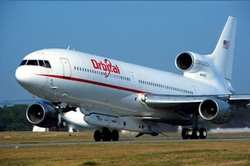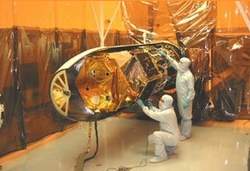Tue, Jan 28, 2003
Advertisement
More News
 ANN's Daily Aero-Linx (12.03.25)
ANN's Daily Aero-Linx (12.03.25)
Aero Linx: American Aviation Historical Society AAHS is dedicated to the preservation and dissemination of the rich heritage of American aviation. Our purpose is to collect, preser>[...]
 ANN's Daily Aero-Term (12.03.25): CrewMember (UAS)
ANN's Daily Aero-Term (12.03.25): CrewMember (UAS)
CrewMember (UAS) A person assigned to perform an operational duty. A UAS crewmember includes the remote pilot in command, the person manipulating the controls, and visual observers>[...]
 NTSB Prelim: Maule M-7-235A
NTSB Prelim: Maule M-7-235A
Immediately After The Right Main Tire Contacted The Runway Surface, The Right Main Landing Gear Failed On October 31, 2025, at about 1227 Pacific daylight time, a Maule M-7-235A, N>[...]
 Airborne-Flight Training 12.04.25: Ldg Fee Danger, Av Mental Health, PC-7 MKX
Airborne-Flight Training 12.04.25: Ldg Fee Danger, Av Mental Health, PC-7 MKX
Also: IAE Acquires Diamond Trainers, Army Drones, FedEx Pilots Warning, DA62 MPP To Dresden Tech Uni The danger to the flight training industry and our future pilots is clear. Dona>[...]
 Aero-News: Quote of the Day (12.04.25)
Aero-News: Quote of the Day (12.04.25)
"On December 3, 2025, at approximately 10:45 a.m., a Thunderbird pilot ejected safely from a F-16C Fighting Falcon aircraft during a training mission over controlled airspace in Ca>[...]
blog comments powered by Disqus





